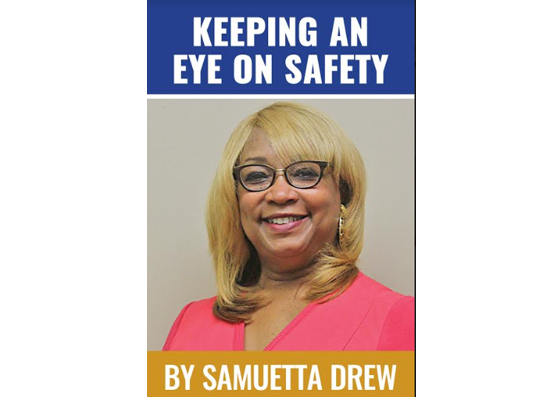By Samuetta Hill Drew
Food and Thanksgiving are almost the same word. Most people start salivating about the many delicious dishes carefully prepared with love and care several days before Thanksgiving. The meal spans the entire gamut of food selections from multiple meats, many different types of vegetables and several desserts. It’s a smorgasbord of food and love combined into one.
The offerings are so plentiful that typically there are plenty of leftovers for family and guests to feast on for several days. This poses the all-important question: how do you make sure you keep your Thanksgiving leftovers safe for consumption? This week’s safety article will cover some of the safety tips to help you answer the question.
Begin by remembering the two-hour rule: Cut the turkey and/or ham meat off the bone into smaller portions. Refrigerate or freeze them in covered shallow containers so they cool quickly. Larger containers or the whole turkey will take too long to cool down to a safe temperature.
After two hours all perishable food enters the “Danger Zone” (between 40°F and 140° F), where bacteria can multiply quickly and cause food to become unsafe. Perishable food should be discarded if left out for longer than two hours, so refrigerate or freeze food items to prevent food waste. Freezer bags can be used also.
Many believe they should refrigerate leftovers after letting them cool to room temperature first. This is not necessarily the case. In fact, this practice could actually make your food unsafe. Leftovers should be placed in the refrigerator or freezer as soon as possible, even if they still have steam or heat coming off of them.
The next big question is “How long does the turkey, ham, and trimmings stay safe in the refrigerator or freezer?” The answer is simple: leftovers can be kept in the refrigerator for three to four days. Many recommend that you use the Monday after Thanksgiving as a reminder that it is the last day you can safely eat leftovers.
Frozen food stays safe almost indefinitely, though the quality may decrease over time. For the best quality, it should be eaten within six months.
When reheating your leftovers, make sure the leftovers reach 165° F as measured with a food thermometer. Reheat sauces, soups, and gravies safely by bringing them to a rolling boil. It is permissible to add a little broth or water to moisten the leftovers.
If you are using a microwave, cover and rotate the food for even heating. Arrange food items evenly in a covered microwave safe glass or ceramic dish. Because microwaves have cold spots, check the internal temperature of the food in several places with a food thermometer after allowing the resting time.
Hopefully, these Thanksgiving leftover safety tips will help you Keep an Eye on Safety during and after your family feast.




